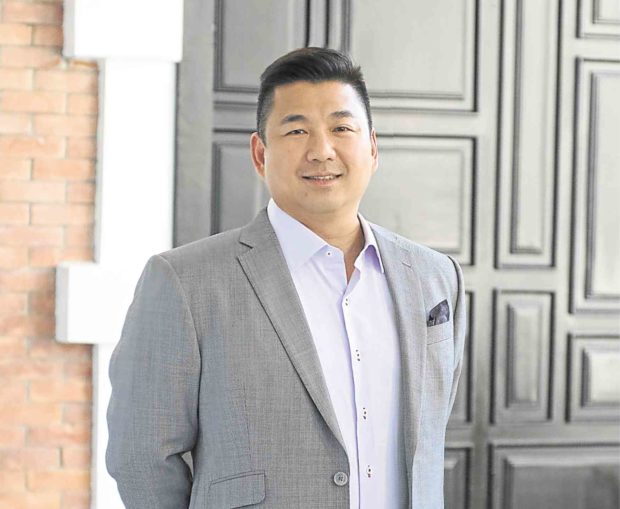Banks move to declare Davao’s Dennis Uy in default after missed Clark lease payments

Davao businessman Dennis Uy
Banco de Oro Universal Bank, the country’s largest private financial institution, moved to foreclose on the loan collateral of Dennis Uy of Davao late Friday, firing the opening salvo in a series of moves that — depending on the ability of the controversial businessman to settle his obligations in four days — could lead to the largest corporate default in Philippine history.
The Inquirer learned that BDO, which has provided the bulk of the financial muscle for Uy’s acquisition spree during the Duterte administration, sent a foreclosure notice to the businessman’s flagship holding firm, Udenna Corp., in a bid to force him to the negotiating table and agree to “an orderly settlement.”
Uy has until Tuesday, July 26, to respond favorably to the notice of BDO, which leads a syndicate of banks with exposures to his six-year debt-fueled corporate buying binge.
The Inquirer spoke to three senior bank officials with direct knowledge of the transaction, but they spoke on condition of anonymity. The Inquirer has also reached out to Uy and to his company but have yet to receive their replies.
One banker said this latest debt woe to hit Uy was triggered by the businessman’s failure to stay abreast of lease payments to the Clark International Airport Corp. (CIAC) for the business enclave he was building on the grounds of the former US military base.
“It’s just a small liability that’s due — $4 million — but since CIAC was already moving to foreclose, the banks decided to move ahead and foreclose on Uy’s assets so that they would become the new owners who will deal with CIAC,” he said. “Dennis [Uy] has until Tuesday to pay.”
The banker expressed concern, however, about the so-called cross default provisions said to be present in all of Uy’s loan agreements with his creditor banks which, at its peak midway through the Duterte administration, was estimated to hit as high as P110 billion.
A cross default provision, which is standard practice when structuring corporate loans, makes one incidence of default by the borrower, not matter how big or small, legally a default on all of his other debts.
A default of this magnitude would be the largest by a private borrowing in local corporate history, dwarfing the soured loans of Subic-based Hanjin Shipyards of $412 million, or P23 billion at the prevailing exchange rate.
“Conservatively, Dennis Uy’s outstanding loans today should be at around P70 billion to P80 billion, excluding the loans of Dito Telecommunity which were lent by banks on the basis of China Telecom’s credit standing,” said another person familiar with the deal.
A bank official said the BDO’s intention in serving the foreclosure notice was not to seize Uy’s assets, per se, but to force the businessman to come to the negotiating table.
“Foreclosure is not the preferred option,” he said. “The situation can be remedied if they are willing to work with the banks.”
